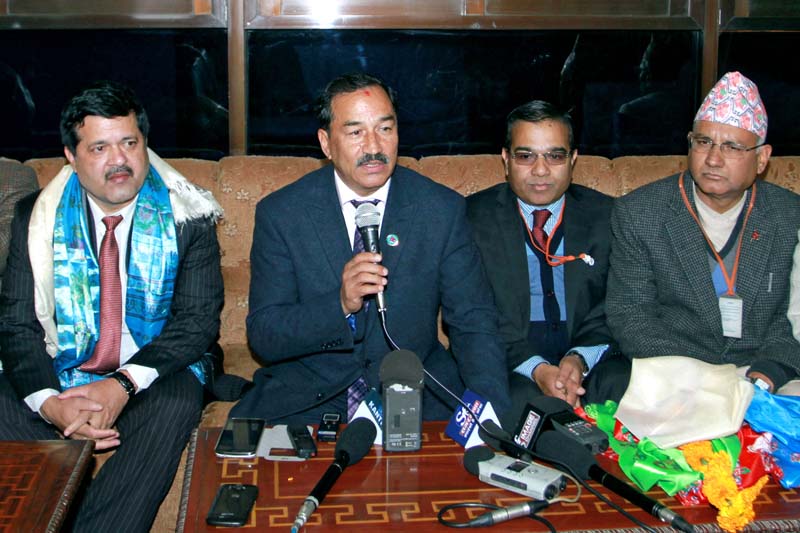Thapa returns with China’s pledge of another fuel grant
Beijing has assured Nepal 1.4 million litres of petroleum grant
Kathmandu, December 29
Deputy Prime Minister and Foreign Minister Kamal Thapa today returned from Beijing with an assurance from China of further grant of fuel worth RMB 10 million, which, according Nepali Oil Corporation officials, is about 1.4 million litres.
This will be China’s second installment of fuel grant to Nepal since October, when the northern neighbour had extended 1,000 metric tonnes of fuel worth RMB 10 million to address Nepal’s fuel crisis.
Thapa’s visit, however, fell short of striking the much expected deal related to long-term import of petroleum products from China and other agreements related to trade, transit and investment.
He claimed his visit had contributed to clearing the way for forging economic ties with China for Nepal’s economic and infrastructure development.
The DPM added that deals on petroleum import, trade and transit, and Bilateral Investment Promotion and Protection Agreement were likely to be inked during Prime Minister KP Sharma Oli’s upcoming visit to China, most probably in early 2016.
“PM Oli is likely to visit to China early next year,” Thapa told mediapersons at Tribhuvan International Airport upon his arrival from China. “We hope that important agreements will be inked during the PM’s visit.”
The PM is likely to leave for China between mid-February and early March depending on the domestic political situation, a source close to PM Oli told The Himalayan Times.
But another source said Oli would visit India before his China visit and this was most likely to happen immediately after the protracted blockade at the Nepal-India entry points ended. He highlighted the discussion on agreement on trade in petroleum products, transit treaty, BIPPA and Free Trade Agreement between the two countries as major achievements of his visit.
According to him, the two countries also dwelt on opening up new trade routes across the Himalayas and upgrading the existing one to boost bilateral trade.






